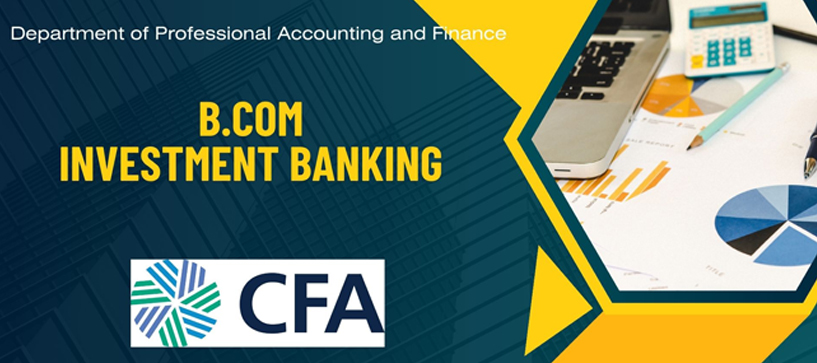
B.Com Investment Banking (CFA LEVEL 1 INTEGRATED)
The B.Com in Investment Banking is an innovative and comprehensive undergraduate programme designed to blend the essentials of commerce with the rigors of financial analysis. Investment banking is a critical segment of the financial sector, involving activities such as underwriting, mergers and acquisitions, market making, and financial advisory services. The B.Com in Investment Banking programme is tailored to provide students with a deep understanding of these key financial processes and equips them with practical skills to apply financial theories to real-world challenges. The integration of the Chartered Financial Analyst (CFA) Level 1 curriculum curriculum into this programme is a distinctive feature, offering students an excellent opportunity to prepare for the globally recognized CFA exams while pursuing their undergraduate studies.
The programme equips students with advanced skills in finance, investment banking, and portfolio management. By providing a solid foundation in commerce alongside specialised training in financial techniques, the programme prepares students to excel in the competitive global financial marketplace.
Eligibility for Admission
Candidates who have completed Higher Secondary (10+2 / PUC) or Equivalent with an aggregate of 40% or an equivalent CGPA are eligible.

